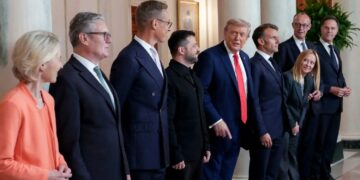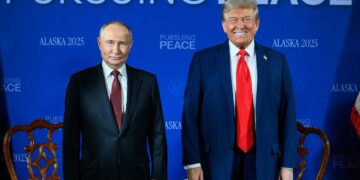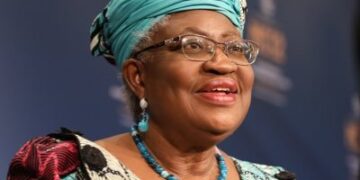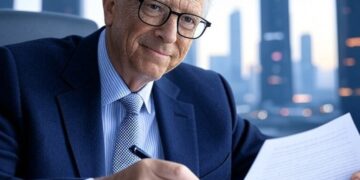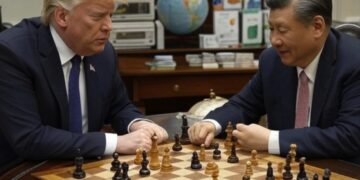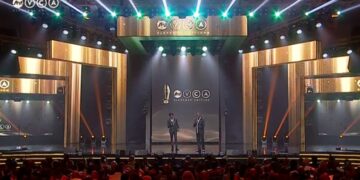August 18, 2025, | Washington, D.C.- President Donald J. Trump welcomed Ukrainian President Volodymyr Zelenskyy and a coalition of European leaders to the White House on August 18, 2025, to discuss peace negotiations aimed at ending the Russia-Ukraine war. The meeting, attended by UK Prime Minister Keir Starmer, French President Emmanuel Macron, German Chancellor Friedrich Merz, Italian Prime Minister Giorgia Meloni, Finnish President Alexander Stubb, NATO Secretary General Mark Rutte, and European Commission President Ursula von der Leyen, followed Trump’s summit with Russian President Vladimir Putin in Alaska on August 15, which failed to secure a ceasefire.
The discussions centered on securing “cast-iron” security guarantees for Ukraine to deter future Russian aggression, with Zelenskyy emphasizing a $90 billion American weapons purchase funded by European allies and potential Ukrainian drone sales to the U.S. No formal agreements were signed, but Trump announced plans for a bilateral meeting between Zelenskyy and Putin at an undetermined location, followed by a trilateral summit including himself. European leaders stressed Ukraine’s sovereignty, rejecting territorial concessions, particularly Russia’s demands for Donbas and Crimea. French President Macron expressed skepticism about Putin’s willingness to negotiate in good faith, advocating for a ceasefire, a stance Trump dismissed, favoring direct peace talks.
The meeting marked a shift from Trump’s earlier ceasefire push, aligning more closely with Putin’s preference for a comprehensive peace deal. European leaders, wary of Ukraine being sidelined after the Alaska summit, presented a united front to ensure Kyiv’s role in negotiations. Zelenskyy described the talks as “constructive,” noting progress on security guarantees to be formalized within days, though challenges remain, including Ukraine’s constitutional ban on ceding territory and ongoing Russian battlefield advances.
Impact for Stakeholders: The absence of a ceasefire or concrete deal prolongs uncertainty, potentially escalating economic and geopolitical risks in Europe. The proposed U.S.-European weapons deal could boost defense sectors but hinges on unresolved funding and diplomatic hurdles. Continued sanctions pressure on Russia, supported by U.S. Senate proposals, may further strain global energy and commodity markets.





